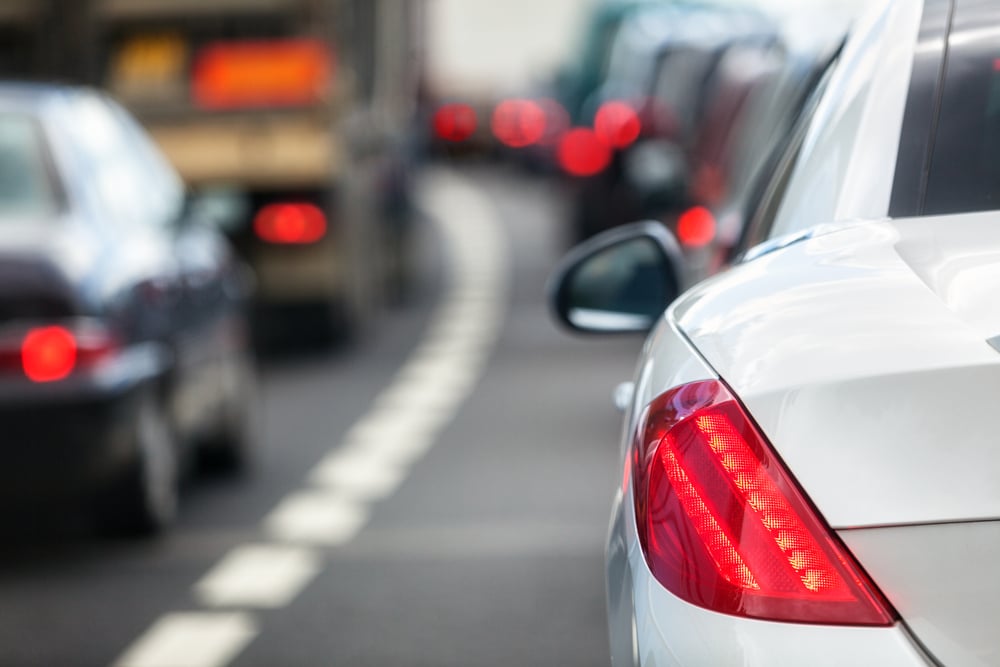When you’re in a car accident, it’s extremely important to know that you might have the right to compensation. However, liability needs to be determined first. Liability is a legal term that basically means the party responsible for the accident.

Uber And Lyft Car Accident
Sometimes that’s pretty obvious, but other times, like in Uber and Lyft car accidents, it gets a bit more complicated. That said, there are some main factors that go into determining liability when it comes to Uber and Lyft car accidents.
1. The Professional Driver, Or The Company?
So, how exactly does liability play a role in Uber and Lyft car accidents? Even if there’s no doubt about the fact that the accident was caused by the Uber or Lyft driver, according to a personal injury attorney in Lawrenceville, it’s not always clear exactly who is responsible for the damages. It could be that the driver’s insurance needs to cover the damages, but it could also be that the company is held liable. While the specifics will heavily depend on the extenuating circumstances of each case, things might become clearer once we go through both options.
- The driver is liable – the driver can be found liable if they caused the accident due to gross negligence. Gross negligence is a legal term that basically means that the person was so careless that it amounted to a clear disregard for others’ safety, essentially being as bad as intentional misconduct.
- The company is liable – a car accident can lead to a company being held liable even if the driver wasn’t negligent. This is called vicarious liability, and it’s a legal term that basically means that one party is responsible for the actions of another party. In Uber and Lyft cases, this might be the case when an accident occurs because there was something wrong with the vehicle, or because the company policies had the driver working in overly strenuous conditions.
That said, the best way to determine liability is to talk to a lawyer who is better equipped to go through the respective insurance policies of the company and the driver, and to see how they interact with each other. Sometimes, it’s possible that you could file a claim against both of them. Because it’s pretty clear when the company can be held liable – either when the contract they have with the insurance agency or the driver(s) stipulate that, or when the accident was caused by their driver due to undesired circumstances that the company created, let’s focus on which factors can affect the liability of drivers.
2. Distracted Driving
Distracted driving is one of the main factors that go into determining liability when it comes to Uber and Lyft car accidents. There are many reasons why someone might get distracted while they’re behind the wheel – their attention was slightly caught by something outside the car, or that they were having a conversation with someone in the car. However, looking at it from a legal perspective, distracted driving means that the driver knowingly and intentionally allowed himself to get distracted. For example, if a passenger suddenly starts yelling at the driver, and he gets distracted – that’s hardly his fault because it’s outside of the scope of things he can control. On the other hand, if he was using his phone, playing loud music through the radio, or creating any other situation by himself that made it hard for him to concentrate on the road, he could face liability.
3. Fatigued Driving
Fatigued driving is another significant factor that comes into play when determining liability. A tired driver is more likely to make mistakes due to poor judgment, and because they’re not always able to react quickly enough in different circumstances.
For example, if they’re sleepy, it’s possible that they might see another car braking ahead of them but fail to apply the brakes themselves in time. In fact, fatigued driving is similar to drunk driving – simply because our brain reacts to fatigue in a similar way that it reacts to alcohol, at least when it comes to driving capabilities. It’s the driver’s responsibility to determine if he’s too tired to drive – and if he decides to do so even though he’s too tired, he might be liable for the accident.
4. Speeding And Other Traffic Laws
Speeding is also something that will play a role when it comes to liability. This is perhaps one of the simplest ways to prove liability. If the driver was going over the speed limit or has violated any of the other traffic laws – such as running a red light, not stopping at a stop sign, or anything else that shows clear and blatant disregard for the rules that everyone else was supposed to abide by, he can be held liable.
Doing any of these things – let alone a few of them at once could be construed as aggressive driving which can directly correspond to liability. That said, going 5 mph over the speed limit isn’t really enough to fall under aggressive driving, so the details of the situation factor in when determining this.
When it comes to Uber and Lyft car accidents, liability can be determined in a number of ways. That is why it is important any Uber And Lyft driver needs Uber And Lyft attorneys.
The factors mentioned in this article are among the crucial ones, however, it’s important to stress that every situation is different and that it’s important to look at all of the factors before determining who can be held liable.

